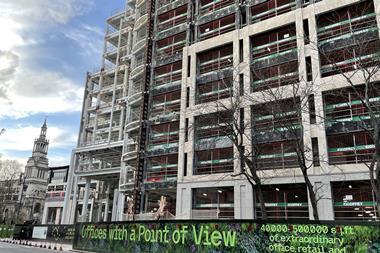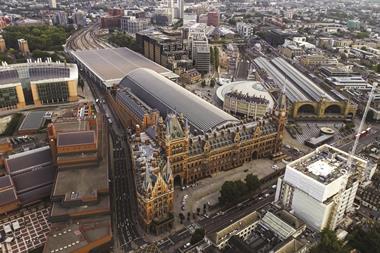After so many blue Mondays, how nice was it to wake up to Happy Monday on 29 March? It was the perfect spring day to emerge blinking from our WFH bunkers and resume interaction with the outside world – and what a brave new world it is.

As we reveal in our Hot Offices Index, renamed the Hot WFH Index this year for obvious reasons, some 66% of people polled by location specialist CACI, which compiles the index for us, said they feel the role of the office has changed permanently. The survey also shows that people only want to spend 2.8 days a week on average in the office.
While I still think the office is far from dead, working from home is clearly here to stay, and some locations, it turns out, are much better suited to it than others. It should be a huge wake-up call to southern towns and cities outside London (which has its own ranking) that the top three locations to WFH identified by the survey are: Glasgow, Manchester and Birmingham.
How so? According to CACI, Glasgow and Manchester have a high percentage of more affluent workers, while Birmingham has a more service-based workforce, all of whom can transition (and have transitioned) to WFH more easily. All three also boast vibrant mixed-use city centres full of restaurants, bars, shops and amenities that people working from home can avail themselves of when they open again… if they open again.
Hopefully, they will. At least many retail, leisure and hospitality occupiers will have benefited from business rates holidays. No such luck for office occupiers.
It is hard to overstate what a blow the government’s shock decision to rule out Covid-related Material Change of Circumstance (MCC) business rates appeals is. It is little wonder agents are talking to lawyers about whether they can challenge the decision in the courts or that the BPF is on the war path, with chief executive Melanie Leech describing it as “a denial of justice”.
Ruling out MCC appeals is about as unjust as it gets when office occupiers have not been allowed to occupy their offices as a result of the WFH directive. Unfortunately, it has nothing to do with whether businesses have suffered Covid-related MCCs and everything to do with whether the government can afford to pay out for Covid-related MCCs. Clearly, it doesn’t think it can.
While there is still a distinct chill in the air for offices, at least spring has sprung in other parts of the property market. Impact Capital has just submitted plans for its £400m Rom Valley Gardens scheme, which is not only a potentially ground-breaking modular construction play (all elements will be delivered by its modular factory), but also underlines the growing confidence in large regeneration schemes as we emerge from the pandemic.
Expect to see more live/work proposals in the coming weeks and months. Expect to see lots more deal activity too, if this week’s bumper crop of deal stories is anything to go by. It turns out that the brave new world may not be quite as different from the brave old one as we thought.






























No comments yet